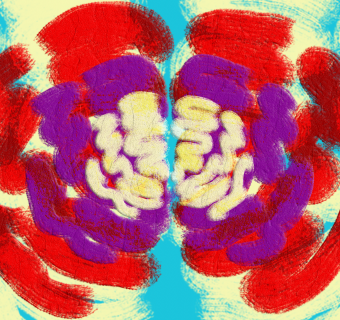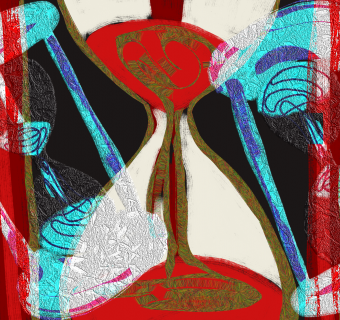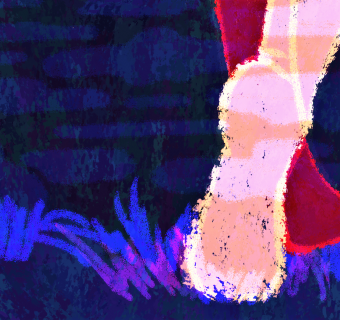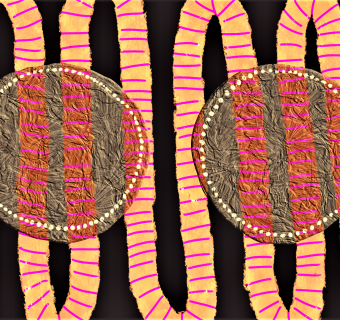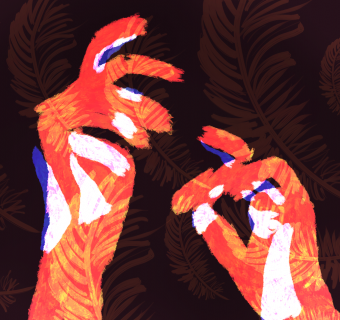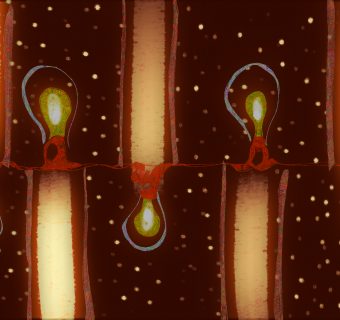These interviews have been edited for length and clarity.
When replanting our roots after they have been ruptured, it is crucial we find soil forgiving enough to support our growth, healing, and rebirth. Through my conversation with two members of UVA Survivors, I learned more about how they try to provide rich emotional ground for growth, and how an environment of healing and transformative justice looks different to each individual.
UVA Survivors strives to create a community of care for sexual assault survivors, through alternative forms of justice, joy, and collaboration. Most of all, they hope to meet others at their own capacity, bringing new fertile ground to individuals who often need it most.
Our organization has been, and is, is an organization that is survivor centric… a place of support for survivors in the past and also survivors right now.
Tell me a little bit about what your organization is and what kind of work you all do for the community.
C.M. 1: What our organization has been, and is, is an organization that is survivor centric… a place of support for survivors in the past and also survivors right now. We try to create…a nurturing space with the survivor in mind.
C.M. 2: A lot of the work is centered around transformative justice….recognizing [that] systems and structures in power…are not necessarily set up to support survivors, even if that’s what they are intended to do. That’s why a lot of the work that is done is typically in response to school, because the school has a very specific way of dealing with… situations and interacting with survivors….so [we are] just offering an alternative way to navigate that experience.
I saw something somewhere that said fall into community not into despair, and I really liked the phrasing of that.
It is so important to provide that alternative form of healing and support to those who need it. To that end, you discussed the importance of transformative justice and healing, both now and on your Instagram. Could you tell me more about why that is so central to your organization?
C.M. 1: At times the carceral system just isn’t what people want to see, and specifically with universities, the way they navigate that [within federal regulations]…can be retraumatizing to survivors, so [we are] just making [healing] survivor-centric… The importance at the end of the day is centering that person, as opposed to further… perpetuating more harm.… Centering a lot of abolitionist values at the core of the organization has been really important. At the end of the day, it is just supposed to be just a space for survivors, so recognizing that not everybody wants the same thing and having those different paths be available is so important to support those different needs at different times.
Following up on what you discussed on supporting different needs of different people, a lot of initiatives you take on have the potential to be emotionally heavy. How do you make space for self and community care in your work?
C.M. 1: It's pretty challenging for a bunch of reasons. One, for how emotional it is, two, for how isolating it can feel…being between different sorts of ideas and public perception. One thing that does sort of help a lot is taking some time for myself. It’s pretty common, but in order to help other people you need to be in that position to do it yourself. Another thing that I do is have a lot of hope. There are a lot of people out there that we already see, specifically—most recently we were speaking with EJC (Environmental Justice Coalition) and ASU (Asian Student Union)---a lot of people that share the same values and believe the same things and want to push towards a better world. So a lot of hope and imagination and that sort of thing is, to me, how I make space to keep on going and pass on that effort.
C.M. 2: A big part of it is recognizing the community that you have. I saw something somewhere that said fall into community not into despair, and I really liked the phrasing of that. Being open to people’s varying capacities in this context is very important. Recognizing that someone will be very active for a few weeks and then need to take a huge step back and not penalizing that in any way or pointing it out… There’s no expectations for anybody, which I think is really helpful. And even who is organizing what events or collaborations is also based on capacity and semester by semester… so that’s also really helpful, to allow for a safe space and allow people to engage as much or as little as they desire, and in different ways. So if they want access to more educational information…or if they just want to show up to more social community events, that being an option too.
Something...cool is having the work not always be outcome-oriented. So if we do a workshop, the goal can be to just do the workshop, and not necessarily have an end product... That’s very helpful to have the process be enough.
How do you find joy despite the heaviness of the work you do?
C.M. 1: Something that feels really joyful in our organization is when we come together, we don’t have to be explicitly talking about something but that underlying form of support and community and knowing that it's there has gone a long way. Coming together in moments like the social events… or community-wide support with people outside our organization. Having other organizations with that same level of hope actually has gone a long way to feeling that sense of joy when it can feel like it gets tough.
C.M. 2: A lot of it is community, whether that is in the organization or with people who have shared values that are outside of the organization. I think something else that’s really cool is having the work not always be outcome-oriented. So if we do a workshop, the goal can be to just do the workshop, and not necessarily have an end product that is all encompassing. That’s very helpful to have the process be enough.
It’s nice that you’re able to hold space for people and not feel like you always have to change every system in one instance, just be in community with each other. What is a misconception you feel people have about survivors in general?
C.M. 2: The idea that support looks the same for every survivor or that every survivor wants to go through the process that has been set out to supposedly be helpful… and that everybody wants the same end result, I think that is a misconception. Or…the idea of transformative justice, I don’t think people view that in the realm of survivors. I think people can recognize the idea of abolition in other contexts, but in this context… It's hard for people to wrap their heads around. It’s a misconception that survivors don’t believe in abolition because of what they have gone through and … I have had interactions with people that that is their kind of viewpoint, and that’s not the case for everyone.
We wanted to offer an alternative framework to the way we typically view harm and how we view people that commit acts of harm—putting people in a binary of good or bad. [That] can actually be very harmful to survivors...
If people are interested in learning more and clearing up these misconceptions, are there any upcoming events or campaigns your organization is planning and how students can get involved?
C.M. 1: [We just completed a] Zine initiative that [we did] with ASU (Asian Student Union) and EJC (Environmental Justice Collective). Everyone [was] welcome, and the purpose of this initiative [was] to create a Zine within our frame of transformative justice, what that would look like, ways we can implement that into our community, larger or otherwise. [We hope to create an] understanding of what alternative forms of justice can look like in different severities, with all of our organizations involved, and distribute that among other students at school.
C.M. 2: In the process of making a Zine, we wanted to offer an alternative framework to the way we typically view harm and how we view people that commit acts of harm—putting people in a binary of good or bad. [That] can actually be very harmful to survivors, especially in college, when people express something has happened to them and others are quick to say, “I know that person, they’re a good person though.” Viewing people as good or evil isn’t helpful especially in our context of college when everybody seems to know each other in some capacity or another. It makes it hard to acknowledge somebody is capable of doing something [bad] when you only think evil people are capable of doing harm.
Acts of transformative justice within your circles, and [practicing] what kind of accountability we [want] to have [should be a] part of everyday life and everyday practices…not just something you have to confront when the stakes are higher.
What is something you wish the UVA community knew about survivors or your organization?
C.M. 1: I think something we wish that our university community knew, [is] that [the] forms of justice that we are talking about…are things that are part of everyday practices. Acts of transformative justice within your circles, and [practicing] what kind of accountability we [want] to have [should be a] part of everyday life and everyday practices…not just something you have to confront when the stakes are higher.
C.M. 2: There are a lot of different types of support that are offered within the organization….I think the organization has just done such a great job of offering up spaces for people that are at different points and processes of their own personal healing and that a lot of the focus is on community and healing. And people heal in different ways, whether that is advocacy, whether that is learning more, whether that is just being with a friend and having a picnic….We try to put that into action and offer a lot of different spaces for people who want different types of things. And there isn’t one right way to heal or one right way to be a survivor, there are a multitude of ways to want support, and we hope we are offering the support they are looking for.
You can learn more about UVA Survivors by visiting their Instagram page, @uvasurvivors. This group is one of many at UVA dedicated to sexual assault awareness, prevention, and support, including programs and groups sponsored by the Women’s Center.


